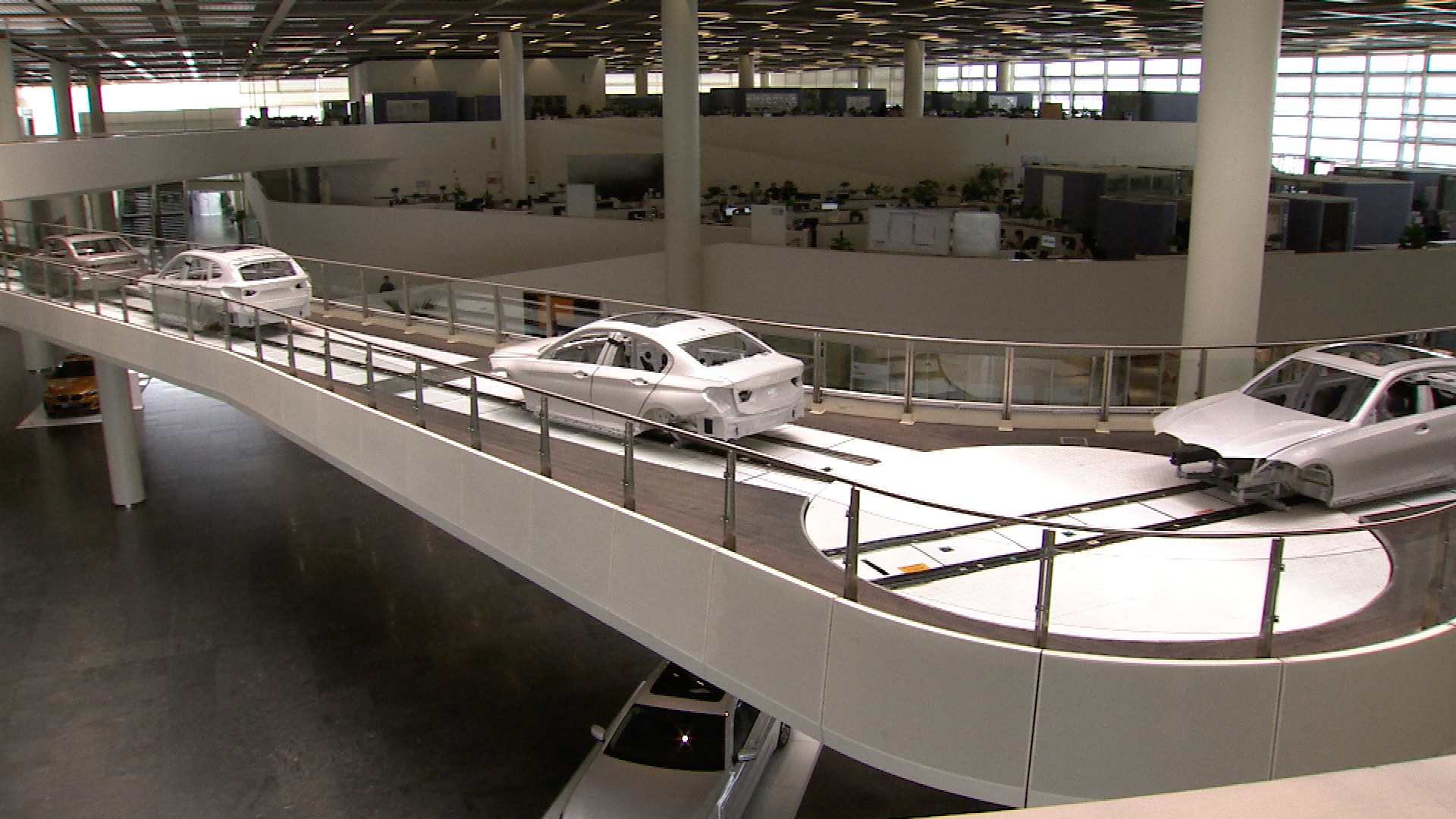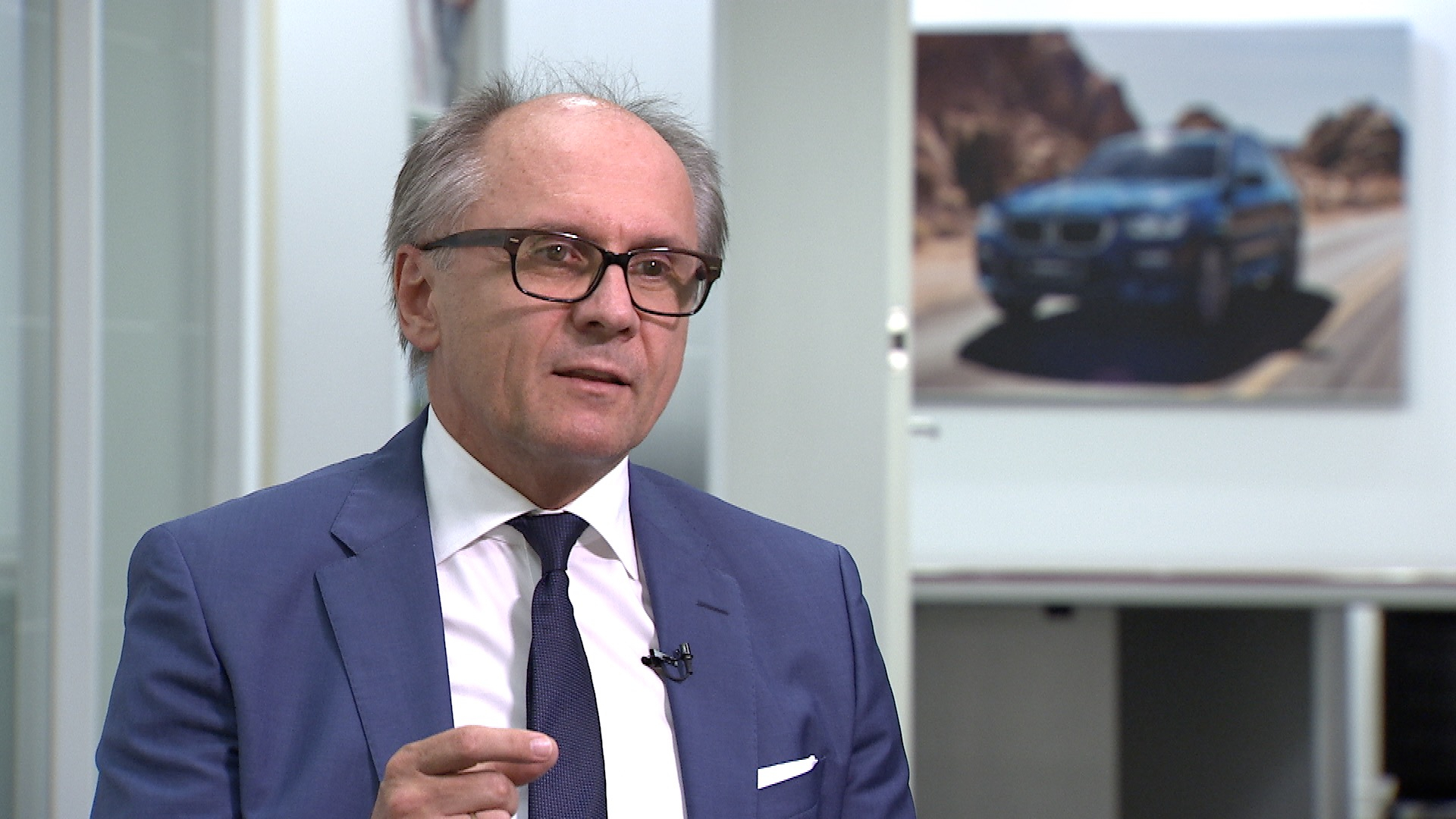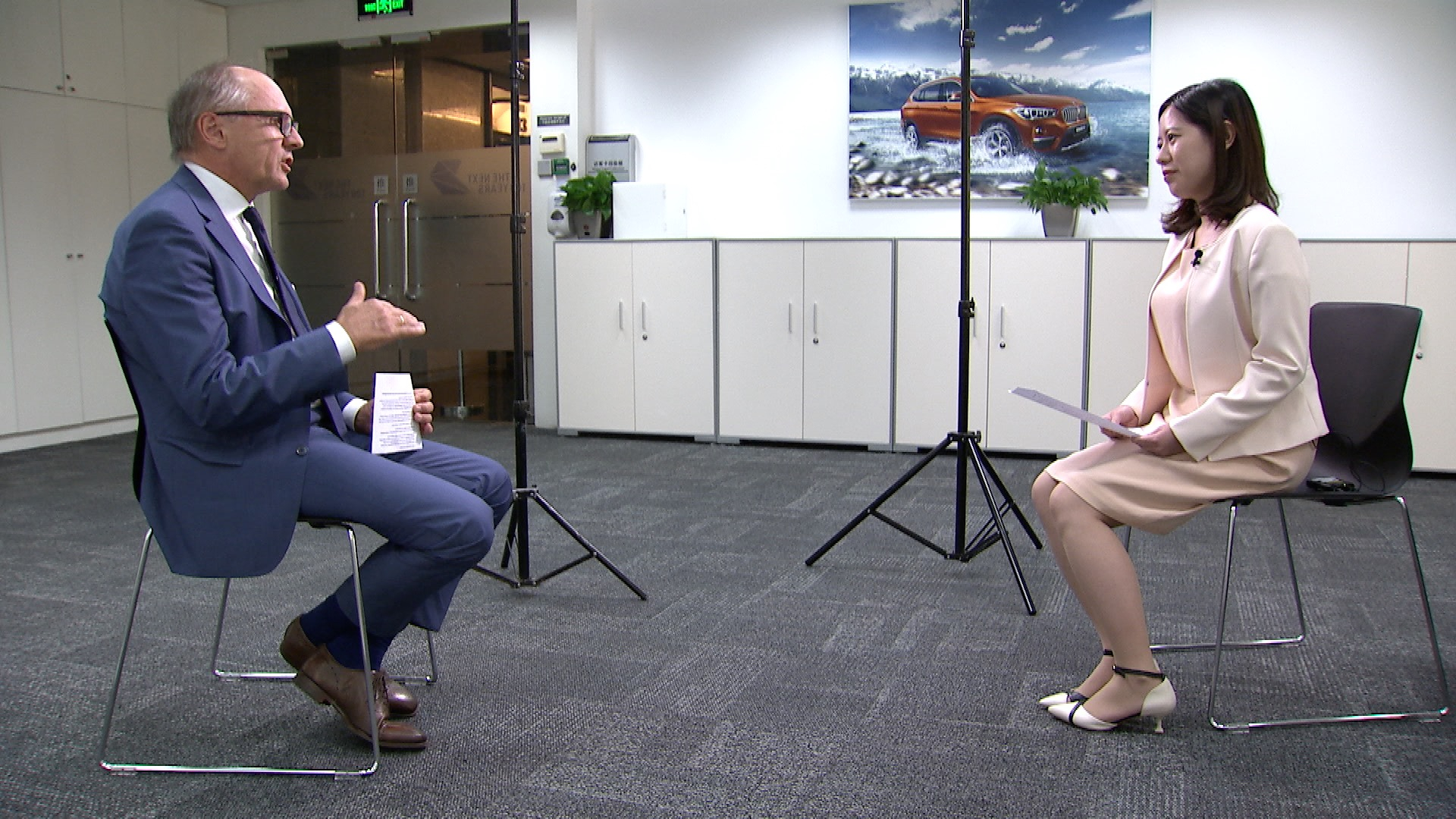04:59

The year of 2003 was the dawn of a new era for "made in China" when German auto giant BMW set up a joint venture with Brilliance Auto in China's northeastern industrial hub of Shenyang.
High-end German cars started to be assembled locally, but their major parts, components, and technologies were all imported in the early days.
More than a decade and a half on, the company's production capacity and positive sales volume continue performing well, even in the recently slowing Chinese car market. Along with its fast-rising production capacity, BMW Brilliance's Chinese suppliers have jumped to over 378, now contributing to nearly half of all parts and components.

Dr. Johann Wieland, CEO of BMW Brilliance. /CGTN Photo
Dr. Johann Wieland, CEO of BMW Brilliance. /CGTN Photo
"We could not have been so successful without having outstanding suppliers here in China," said Dr. Johann Wieland, CEO of BMW Brilliance. The CEO pointed out that it was the company's philosophy to always work with the best suppliers and to rely on their innovation, quality and competitiveness, which suggests that the rise in local suppliers is not just a cost-wise shift, but also an attempt to dive deeper into the Chinese market.
For local auto-part suppliers, chances and challenges coexist. Power Xinchen, BMW Brilliance's first supplier for engine crankshafts, hopes to expand the market and go global through collaboration with the world-leading manufacturer. "Their demand for us is 'quality, quality, and quality'," Power Xinchen's deputy general manager Le Jixiang said, while recalling how they struggled to meet the strict standards of their joint-venture client, and how BMW Brilliance have guided them on logistics, efficiency, cost and planning.

CGTN's exclusive interview with Dr. Johann Wieland, CEO of BMW Brilliance. /CGTN Photo
CGTN's exclusive interview with Dr. Johann Wieland, CEO of BMW Brilliance. /CGTN Photo
It took the crankshaft provider nearly seven years of system improvements and management reforms to reach zero defect and get BMW Brilliance's full recognition. Now the company has already met their preliminary goal by providing crankshafts to BMW's overseas plant.
BMW Brilliance's management team said they understand well why and how OEMs should develop a network of mature partners. In the past 16 years, they have helped several Chinese suppliers like Power Xinchen grow into industry leaders or global suppliers. That also includes hundred-year-old Chinese state-owned steel manufacturer Shougang. It was in the transition to provide high-end steel plates and services when they joined hands with BMW Brilliance, which seemed to be an ideal starting point. Lack of experience once kept their products far from the demand of luxury cars, but neither side gave up in seeking breakthroughs in quality control, research and development.

Engine crankshaft produced by Power Xinchen. /CGTN Photo
Engine crankshaft produced by Power Xinchen. /CGTN Photo
Liu Jianhui, the general manager of Beijing Shougang, said some of their peers once compared their attempt to step into the field of auto sheet production as a pupil trying to get master's degrees. However, after almost a decade of growing pains, their success in working with BMW Brilliance finally won them brand influence and deals from over 70 OEMs and parts factories. "We can see the growing confidence in us in the industry," Liu said.
Experts say in the past 20 years, the growth rate of Chinese auto making suppliers has exceeded that of the entire industry, especially in fields like automotive interior and transmission. While suppliers now account for over 75 percent of the total value of a vehicle, many believe they will continue to play a more important role. And Chinese national policies have already shown focus on the whole supply chain rather than merely car assembly.
Feng Li from Deloitte Consulting told CGTN that China's automobile industry, especially its auto parts industry, has a very promising future. The expert explained that the domestic suppliers are growing from local supply to global supply, and are enhancing technologies and levels of substitution. Some of the core component suppliers are already devoted to future technologies like automatic driving, vehicle networking and so on. "Their development will bring advantages in both production capacity and technology to private Chinese firms," Feng added.

Production base of Shougang Beijing. /CGTN Photo
Production base of Shougang Beijing. /CGTN Photo
As for BMW Brilliance, it is said that the company will further expand partnerships to meet their future strategies, even though their purchases of traditional components is reported to shrink. Dr. Johann Wieland pointed out that China now has the leading companies and a lot of innovations. Therefore in burgeoning areas like new-energy vehicles and autonomous driving, the BMW group can get a lot of innovations out of China and use them all over the world.
Soon, BMW Brilliance will start producing their new all-electric BMW iX3 – made only in Shenyang and exported all over the world. That suggests the win-win relation between Chinese suppliers and big names in auto-manufacturing have come to a new stage, in a more challenging market, facing the forthcoming intelligent and electric revolution in the auto sector.